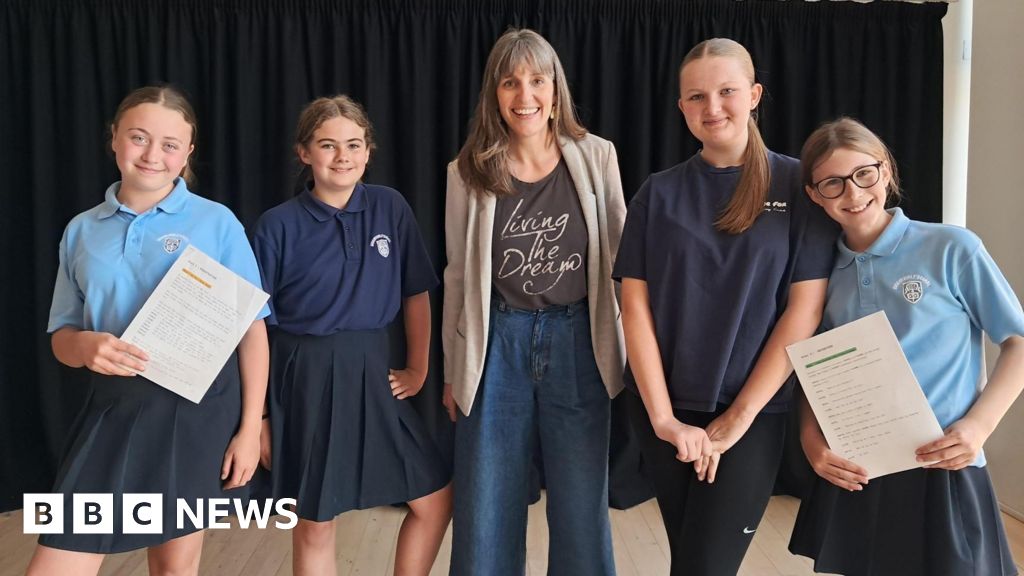- Investing
Japan’s ruling party suffers record low result in Tokyo poll
时间:2010-12-5 17:23:32 作者:Social Media 来源:Olympics 查看: 评论:0内容摘要:"Those who can afford these antibiotics often overuse them; those who can't, don't get them at all," says Dr Ghafur. "We need a system that ensures access for the poor and prevents misuse by the well-to-do.""Those who can afford these antibiotics often overuse them; those who can't, don't get them at all," says Dr Ghafur. "We need a system that ensures access for the poor and prevents misuse by the well-to-do."
She said she enjoyed seeing many of her audiences come along to see her at events "because they read my books as children"."The children are still keen but it's the mums that get really excited! It's like a sort of farewell tour that hopefully will go on."

Despite having written more than 100 books, Dame Jacqueline said she still felt anxious when writing."Always about halfway through a book, even now, you think 'I've got the hang of this with all these books that I've written', but I get that terrible doubt and worry about it and and it's just something you learn. Work through it, get to the end."One habit that must help is that she writes in her pyjamas in bed, once she's fed the cat and let the dogs out first thing in the morning.

"That's the magic time, and it just works for me. Apparently Michael Morpurgo does exactly the same!"But it wasn't always so easy to pick and choose her times to write.

Dame Jacqueline said: "I was idiotic enough to be married at 19 and had a child at 21.
"My husband wasn't a terrible man in the slightest but it was an age [the 1960s] when men went out and did, and women did everything else.""AI support can be a helpful first step, but it's not a substitute for professional care," agrees Mr Tench.
And the public are largely unconvinced. A YouGov survey found just 12% of the public think AI chatbots would make a good therapist.But with the right safeguards, some feel chatbots could be a useful stopgap in an overloaded mental health system.
John, who has an anxiety disorder, says he has been on the waitlist for a human therapist for nine months. He has been using Wysa two or three times a week."There is not a lot of help out there at the moment, so you clutch at straws."
- 最近更新
- 2025-07-07 08:23:13Globespotter: A World of DifferencePlayMasque Publishing
- 2025-07-07 08:23:13Solitaire: GolfPlayMasque Publishing
- 2025-07-07 08:23:13LIVE: Chelsea vs Palmeiras – FIFA Club World Cup
- 2025-07-07 08:23:13Beyoncé lights up Washington with dazzling Fourth of July ‘Cowboy Carter’ show
- 2025-07-07 08:23:13Solitaire: Four SeasonsPlayMasque Publishing
- 2025-07-07 08:23:13every day for a month to see what type of change you can achieve
- 2025-07-07 08:23:13CrosswordPlayMasque Publishing
- 2025-07-07 08:23:13Canasta for TwoPlayMasque Publishing
- 热门排行
- 2025-07-07 08:23:13restated March's rate projections
- 2025-07-07 08:23:13ParadeNYT ‘Connections’ Hints and Answers Today, Monday, June 23
- 2025-07-07 08:23:13Interest rates on 60-month new car loans in the United States from January 2014 to May 2025
- 2025-07-07 08:23:13BackgammonPlayMasque Publishing
- 2025-07-07 08:23:135 retirement withdrawal steps to make your money last longer
- 2025-07-07 08:23:13Simply JigsawPlayMasque Publishing
- 2025-07-07 08:23:13Shop at Counter Culture Coffee
- 2025-07-07 08:23:13Pennsylvania Man Cut Off His Dog’s Leg With Scissors—Demand Justice for Kimber!
- 友情链接
- What matters now is Tehran’s response Also in this newsletter: How the Iran crisis affects Europe Trump’s fateful choice on Iran Self-driving technology on which Elon Musk has staked future of his company debuts in Texas He should persuade the leadership in Tehran that this is still possible The truth about Mark Zuckerberg’s macho-man makeover Inflation and interest rates tracker: see how your country compares The 10 most entertaining terraces in London Investing in America: The best US cities for international business The 10 most entertaining terraces in London Sánchez torpedoes Nato unity on eve of crucial summit UK output price inflation hits 4-year low, survey shows Inflation and interest rates tracker: see how your country compares US moves B-2 stealth bombers into Pacific as Trump weighs entering war Also in this newsletter: How the Iran crisis affects Europe Military briefing: will Iran start a new ‘tanker war’? The 10 most entertaining terraces in London Farage to offer non-doms £250,000 fee to avoid UK tax for life Israel weighs next phase of Iran campaign after US strikes What matters now is Tehran’s response Military briefing: will Iran start a new ‘tanker war’? Who has Trump’s ear on Iran? Appreciation would suit Beijing’s global ambitions for the currency Also in this newsletter: How the Iran crisis affects Europe Who has Trump’s ear on Iran? He should persuade the leadership in Tehran that this is still possible He should persuade the leadership in Tehran that this is still possible Trump gambles his presidency as US enters war with Iran Inflation and interest rates tracker: see how your country compares PM Shigeru Ishiba’s LDP defeated ahead of upper house vote next month
